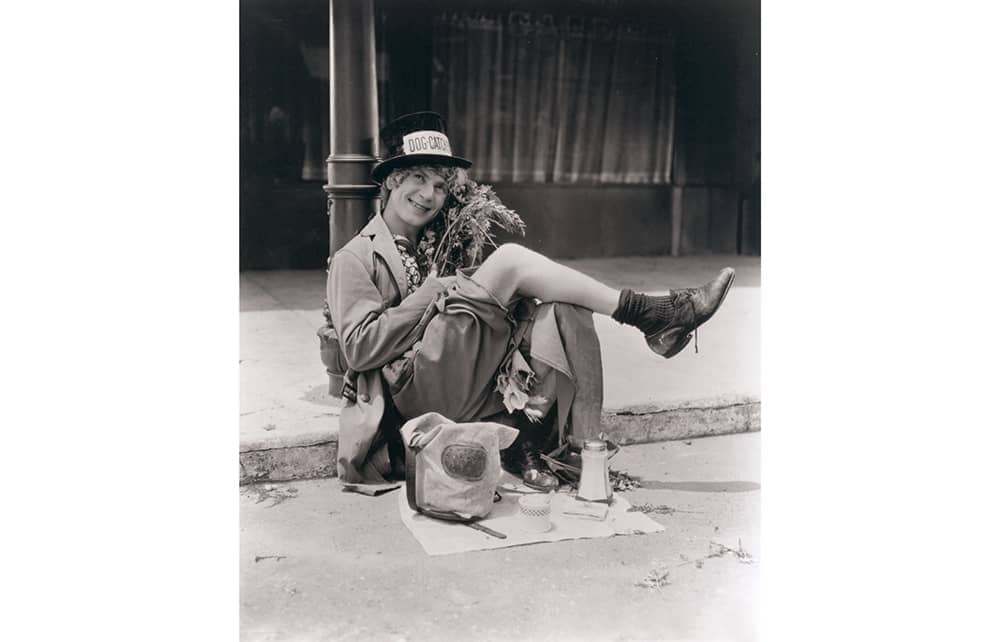It’s hard (if not impossible) to imagine a world worth living in that doesn’t include the Marx Brothers; and equally impossible to imagine the Marx Brothers without their forever silent, animal-loving, hilariously unpredictable Harpo, he of the moppet wig, trampish overcoat packed with stolen silverware and blow torches, and recurringly grotesque facial expressions. For while the greatest comic performers of the silent film era (such as Chaplin and Keaton) couldn’t speak to the camera, Harpo was the only comic of the talkie era who simply wouldn’t, as if human conversation were somehow beneath him.
There was always something about Harpo that seemed a little better than the ridiculous world he inhabited, as if he spiritually resided way out beyond the stratospheric clouds of absurdity. As Joe Adamson wrote in 1973, when the Marx Brothers films were being enthusiastically rediscovered on college campuses and film repertory movie screens: ‘Harpo’s actions bespeak an ethereal freedom that is immediately recognisable as something we know nothing about.’ Which is probably why so many of us enjoy him.
The second of five sons born in Manhattan to Jewish immigrants – the legendary stage mom Minnie and her husband Sam, a poor excuse for a tailor and a great excuse for a family chef, known as ‘Frenchie’ – Adolph (Harpo) Marx enjoyed what he happily recalled as an impoverished life, one in which he roamed the streets selling stolen items at pawn brokers, or doing chores for nickels. He quickly learned to be happy with what little he possessed while he had it, since his ne’er-do-well older brother Joseph (known as Chico, as in ‘he’s off chasing another chick, oh’) would almost instantly steal it, sell it and use the money to gamble himself further into debt.
Unlike his brothers, Harpo didn’t have a cruel or selfish streak in his nature
All five of the brothers eventually followed their uncle Al Shean into vaudeville, singing, dancing and engaging in comic skits that often played off the motley urban accents of their neighbourhoods – Irish, Italian, Yiddish and German.







Comments
Join the debate for just £1 a month
Be part of the conversation with other Spectator readers by getting your first three months for £3.
UNLOCK ACCESS Just £1 a monthAlready a subscriber? Log in